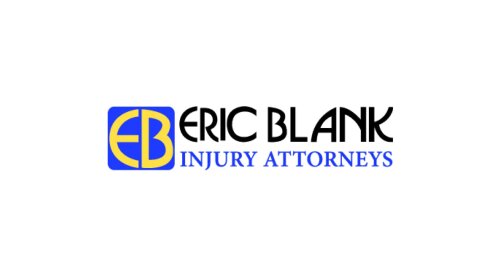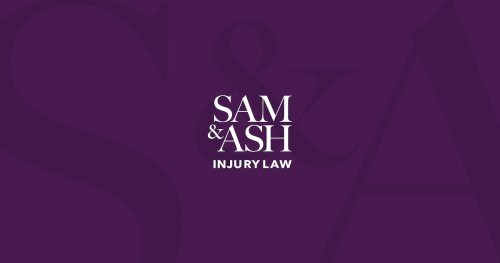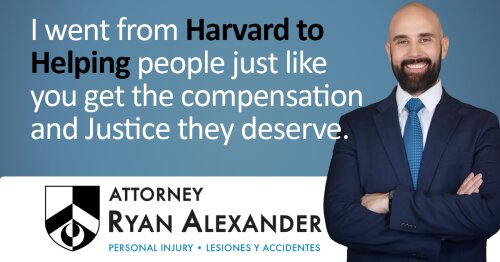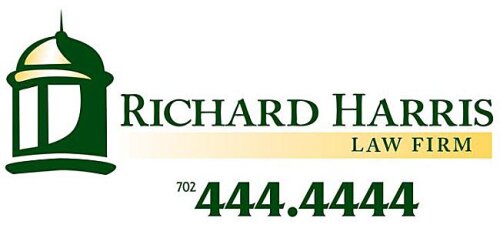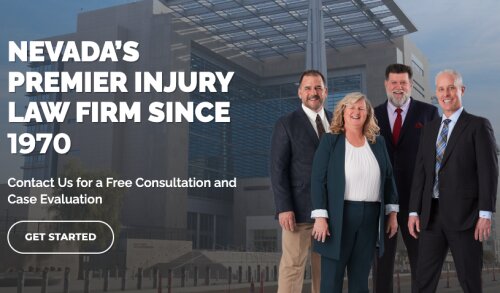Best Insurance Fraud Lawyers in Las Vegas
Share your needs with us, get contacted by law firms.
Free. Takes 2 min.
List of the best lawyers in Las Vegas, United States
About Insurance Fraud Law in Las Vegas, United States
Insurance fraud occurs when someone intentionally lies, hides facts, or engages in deceptive behavior to obtain money or benefits from an insurance company or to avoid paying what they owe. In Las Vegas, which is in Clark County, Nevada, insurance fraud can involve staged car accidents, false or inflated property-damage claims, bogus medical billing, premium evasion, falsified worker-s compensation claims, or fraudulent activity by agents and providers. Insurance fraud may lead to both civil and criminal consequences and can be pursued by insurance companies, state regulators, and criminal prosecutors. Las Vegas cases are handled under Nevada law and by local agencies, and the stakes can include fines, restitution, loss of professional licenses, and jail or prison time.
Why You May Need a Lawyer
Insurance fraud matters often involve complex factual and legal issues. You may need a lawyer if you are:
- Under investigation by an insurer or a government agency, including local police, the Clark County District Attorney, or the state insurance regulator.
- Accused of committing fraud, whether formally charged or merely suspected, and facing possible criminal prosecution.
- The target of a civil suit or a demand for restitution from an insurance company seeking to recover paid benefits.
- A licensed professional - for example an insurance agent, medical provider, or contractor - facing administrative discipline, license suspension, or revocation by state regulators.
- A consumer who believes an insurer has wrongfully labeled a legitimate claim as fraudulent and denied benefits.
In each situation, an experienced lawyer can evaluate the facts, protect your rights during questioning, negotiate with prosecutors or insurers, develop defenses, and represent you in court or administrative hearings. Early legal advice can prevent statements or actions that make the case worse.
Local Laws Overview
Insurance fraud in Las Vegas is governed primarily by Nevada law and enforced locally by agencies and prosecutors in Clark County. Key aspects to understand include:
- Criminal and civil components: Insurance fraud can be prosecuted as a criminal offense and pursued as a civil claim. Criminal cases require proof of intent to defraud, whereas civil matters focus on restitution and damages.
- Elements of the offense: Prosecutors generally must show a false statement or deceptive act that was material and made knowingly with the intent to secure an improper payment or benefit.
- Types of penalties: Penalties can include criminal fines, restitution to the insurer or victims, imprisonment or jail time for serious offenses, community service, probation, and potential forfeiture of ill-gotten gains. Licensed professionals may also face administrative sanctions such as fines, license suspension, or revocation.
- Investigative process: Insurers often have special investigation units that gather evidence using claim reviews, medical records analysis, billing audits, surveillance, and statements. If evidence suggests criminal conduct, cases may be referred to local law enforcement or the District Attorney.
- Administrative enforcement: The Nevada Division of Insurance handles regulatory complaints, enforcement actions, and license discipline for insurance producers and companies operating in the state.
- Reporting and referral: Suspected fraud can be reported to an insurer s fraud unit, local police or sheriff s office, the Clark County District Attorney s Office, or the Nevada Division of Insurance for investigation and possible prosecution.
Frequently Asked Questions
What exactly counts as insurance fraud?
Insurance fraud covers intentionally misleading actions to obtain insurance benefits or avoid responsibilities. Examples include staging an accident, exaggerating damage or injuries, submitting false invoices or medical bills, misrepresenting material facts on an application, failing to disclose relevant information to reduce premiums, or an agent stealing client premium payments. The key element is intent to deceive.
Can I be charged for a mistake on an insurance form?
Not usually. Criminal insurance fraud requires proof that the false statement was made knowingly and with intent to deceive. Honest mistakes or minor omissions are generally not criminal. However, repeated or significant misrepresentations, or failure to correct known errors after they are discovered, can trigger civil or criminal exposure. If you are unsure, consult a lawyer before giving formal statements.
What should I do if an insurer says my claim is suspicious?
Do not destroy documents or give voluntary recorded statements without legal advice. Collect and preserve all documents, photos, receipts, medical records, and communications that support your claim. Consider consulting an attorney who handles insurance disputes to review your evidence and help you respond. Prompt, organized documentation improves the chances of resolving the matter without escalation.
What happens if I am under criminal investigation for insurance fraud?
If law enforcement or prosecutors are investigating, you may be interviewed, subpoenaed for documents, or faced with search warrants in serious cases. You have the right to remain silent and to an attorney. Do not dismiss subpoenas or invitations to talk with investigators. Contact a criminal defense lawyer experienced in insurance fraud promptly to protect your rights and manage interactions.
Can an insurance company deny a legitimate claim by accusing me of fraud?
Yes, an insurer can deny a claim if it believes there is fraud. That does not mean the denial is correct. You can challenge a denial through the insurer s internal appeal processes, file a complaint with the Nevada Division of Insurance, and pursue civil litigation if necessary. A lawyer can help you assemble evidence, counter the insurer s assertions, and represent you in appeals or court.
What are common defenses to an insurance fraud accusation?
Common defenses include lack of intent, honest mistake, insufficient evidence, identity theft or fraudulent acts by a third party, and the insurer s failure to follow its own procedures. For licensed professionals, demonstrating compliance with applicable rules and documentation practices can be important. A lawyer will tailor defenses to the facts of the case.
Could a conviction affect my job or professional license?
Yes. A criminal conviction or an administrative finding of fraud can lead to loss of an insurance license, professional discipline for doctors, contractors, or other licensed professionals, and difficulty obtaining future employment. Even allegations alone can damage reputation. If you are licensed, consider seeking counsel that understands both criminal defense and administrative law.
How long does an insurer or prosecutor have to bring a case?
Statutes of limitations vary depending on whether the matter is criminal or civil and on the type of offense. Timelines depend on the nature of the alleged fraud and applicable state law. If you believe you may be at risk or you need to assert a claim, seek legal advice promptly to avoid missing important deadlines.
What evidence do investigators use in fraud cases?
Investigators may use claim forms, medical and billing records, surveillance videos, witness statements, financial records, phone records, internet or social media evidence, prior claims history, forensic accounting, and expert testimony. Insurance companies and prosecutors often build cases using patterns of activity that suggest intentional deception.
How do I find a qualified lawyer in Las Vegas for insurance fraud matters?
Look for attorneys with experience in criminal defense and insurance law who handle insurance-fraud cases in Nevada courts. Use the State Bar of Nevada s lawyer referral services, local bar associations, or ask for recommendations from trusted professionals. When interviewing lawyers, ask about their experience with similar cases, outcomes, trial experience, fee structure, and whether they handle administrative licensing matters as well as criminal or civil claims.
Additional Resources
Nevada Division of Insurance - state regulator that handles consumer complaints, licensing, and enforcement related to insurance operations.
Clark County District Attorney s Office - local prosecutor that handles criminal insurance fraud prosecutions in Las Vegas and surrounding areas.
Las Vegas Metropolitan Police Department - conducts criminal investigations when fraud involves suspected criminal conduct.
State Bar of Nevada - provides lawyer referral services, resources on hiring attorneys, and information about legal ethics and discipline.
National Insurance Crime Bureau - a national non-profit that tracks insurance fraud trends and provides resources on detection and reporting.
Nevada Legal Services and local legal aid organizations - may provide civil legal help to eligible low-income residents facing insurance disputes.
Consumer protection offices at the county or state level - for general guidance and complaint filing when you believe you were mistreated by an insurer.
Next Steps
If you are involved in an insurance fraud matter, take these practical steps:
- Preserve evidence. Keep all documents, photographs, receipts, medical records, contracts, texts, and emails related to the claim.
- Do not give recorded statements or sign documents until you have spoken with a lawyer, especially if law enforcement or an insurer s special investigations team is involved.
- Contact an attorney experienced in Nevada insurance-fraud defense or insurance litigation as soon as possible for an initial consultation.
- If you are a victim of suspected fraud, report it to your insurer s fraud unit and to local law enforcement or the Nevada Division of Insurance.
- If you are a licensed professional, contact counsel who handles administrative hearings and licensing matters in addition to criminal defense.
- Be prepared to provide your lawyer with a clear timeline, copies of records, names of witnesses, and any communications you have received from insurers or authorities.
Taking prompt, informed action helps protect your legal rights and improves your ability to respond effectively to investigations, denials, or charges. An experienced lawyer can guide you through the specific procedural and substantive aspects of Nevada and Las Vegas practice and help you pursue the best possible outcome.
Lawzana helps you find the best lawyers and law firms in Las Vegas through a curated and pre-screened list of qualified legal professionals. Our platform offers rankings and detailed profiles of attorneys and law firms, allowing you to compare based on practice areas, including Insurance Fraud, experience, and client feedback.
Each profile includes a description of the firm's areas of practice, client reviews, team members and partners, year of establishment, spoken languages, office locations, contact information, social media presence, and any published articles or resources. Most firms on our platform speak English and are experienced in both local and international legal matters.
Get a quote from top-rated law firms in Las Vegas, United States — quickly, securely, and without unnecessary hassle.
Disclaimer:
The information provided on this page is for general informational purposes only and does not constitute legal advice. While we strive to ensure the accuracy and relevance of the content, legal information may change over time, and interpretations of the law can vary. You should always consult with a qualified legal professional for advice specific to your situation.
We disclaim all liability for actions taken or not taken based on the content of this page. If you believe any information is incorrect or outdated, please contact us, and we will review and update it where appropriate.



